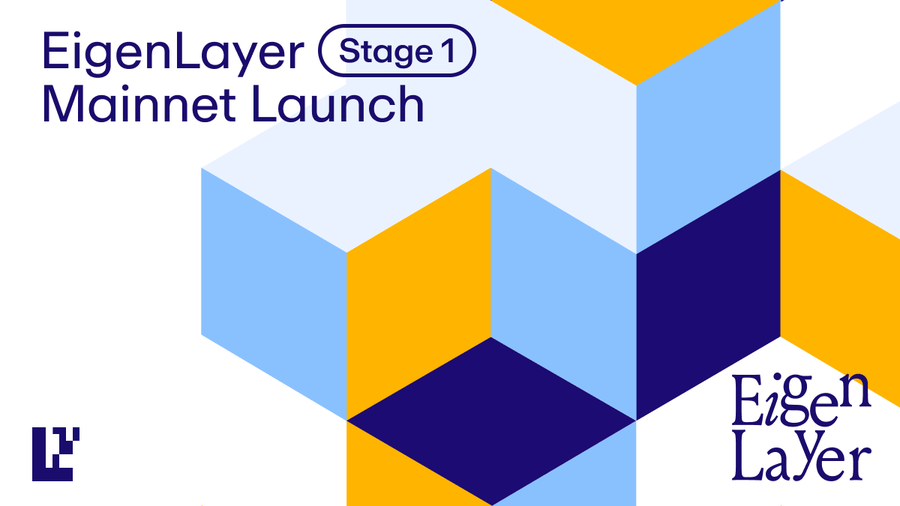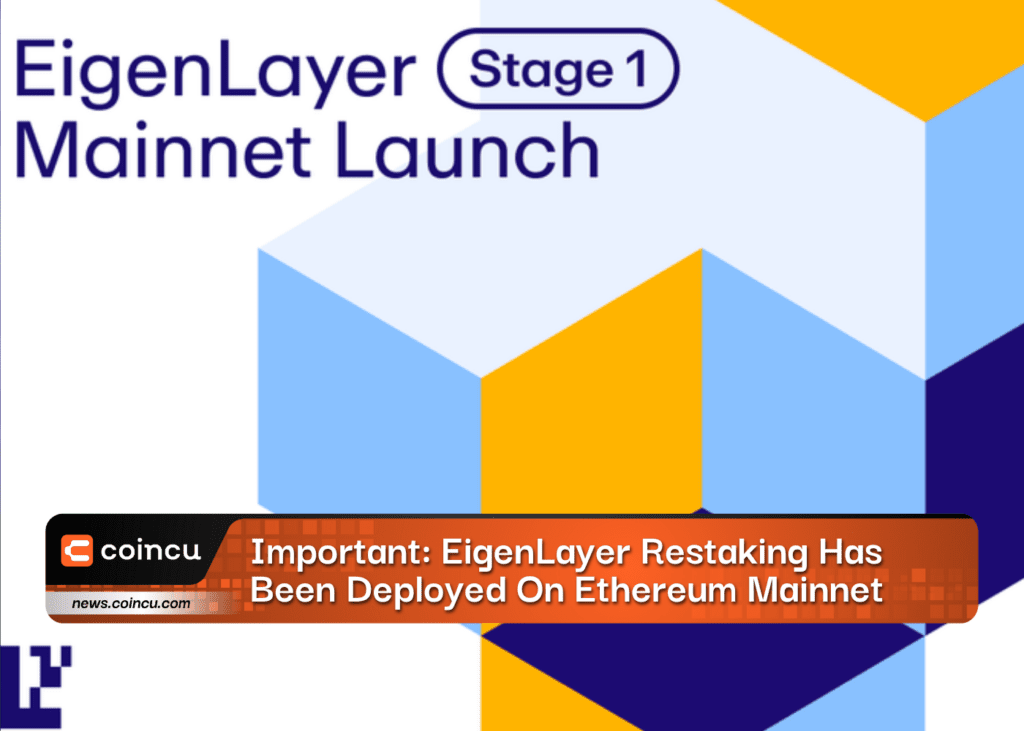Key Points:
- DeFi platform EigenLayer announced it had implemented its reset protocol on the Ethereum mainnet.
- This protocol allows users to staking ETH by depositing liquidity staking tokens such as Lido stETH (stETH), Rocket Pool ETH (rETH), and Coinbase Wrapped staking ETH (cbETH).
- To date, the project has received $64.5 million in funding, with a valuation of $500 million.
According to an official press release from the DeFi platform EigenLayer has implemented its staking reset protocol on the Ethereum mainnet.

The launch of EigenLayer on the Ethereum mainnet marks an essential milestone in our mission to create a robust environment for open innovation. Its aims to empower ecosystem stakeholders and innovate on the future of shared security and distribution by promoting inclusivity, transparency, and continuous improvement.
For this launch:
- Liquid staking: Max 3.2k tokens per asset
- Deposit limit: 32 tokens per transaction
- Additional EigenPod creation pauses at 9.6k ETH w/ no limits on pointing validators to an EigenPod
- Enhanced asset safety: 7-day withdrawal delay
This protocol allows users to staking ETH by depositing liquidity staking tokens such as Lido stETH (stETH), Rocket Pool ETH (rETH), and Coinbase Wrapped staking ETH (cbETH).
Ethereum bettors can now reset in EigenLayer by:
- Deposit their liquidity staking tokens into the EigenLayer contract
- Create an EigenPod and set their Beacon chain withdrawal credentials to their EigenPod address.
This mainnet launch is the first of three stages, onboarding Restakers onto EigenLayer. The second launch later this year will onboard Operators, who perform validation tasks for AVSs built on the platform. In the third stage, several AVSs will launch on EigenLayer.
The protocol currently only supports liquid resets and factory resets. Reset allows staking ETH for use on other protocols in exchange for protocol fees and rewards.
To date, EigenLabs, the developer of EigenLayer, has received a total of $64.5 million in funding, at a valuation of $500 million, including a $50 million Series A funding US completed in March of this year.
DISCLAIMER: The information on this website is provided as general market commentary and does not constitute investment advice. We encourage you to do your research before investing.
Join us to keep track of news: https://linktr.ee/coincu
Foxy
Coincu News





